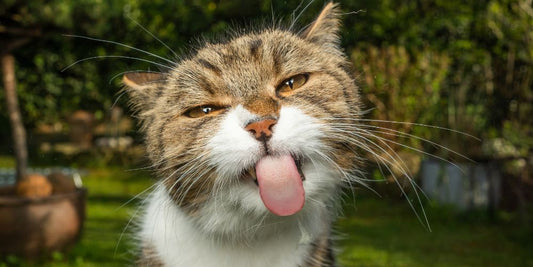When it comes to our beloved pets, we always strive to keep them healthy and happy. However, there's a hidden threat lurking in their gastrointestinal tract — intestinal parasites. These tiny organisms, including roundworms, hookworms, and giardia, can pose significant risks to our furry companions' well-being. Let us shed light on the common intestinal parasites that affect pets, explore their symptoms, modes of transmission, and most importantly, discuss effective prevention strategies.
Understanding Intestinal Parasites:
- Roundworms: Roundworms are one of the most prevalent intestinal parasites in pets. They resemble spaghetti-like worms and can cause various health problems, including diarrhea, vomiting, weight loss, and a potbellied appearance. Puppies and kittens are especially vulnerable, as they can contract roundworms from their mother or contaminated environments.
- Hookworms: Hookworms are blood-sucking parasites that attach themselves to the intestinal lining of pets. They can cause anaemia, weight loss, lethargy, and dark, tarry stools. Hookworm larvae can be found in contaminated soil, making it easy for pets to become infected through ingestion or skin contact.
- Giardia: Giardia is a microscopic parasite that affects the gastrointestinal tract. Pets infected with giardia may experience diarrhea, vomiting, weight loss, and poor appetite. These parasites are typically contracted through the ingestion of contaminated water or food.
Transmission and Prevention Strategies:
Intestinal parasites can be transmitted through various means, including the faecal-oral route. This means that pets can become infected by ingesting the eggs or larvae of these parasites present in contaminated soil, water, or faeces.
To protect our pets from these hidden dangers, it is crucial to implement the following prevention strategies:
- Regular deworming: Consult with your veterinarian about a suitable deworming schedule for your pet. Routine deworming helps eliminate any existing parasites and prevents re-infestation.
- Hygiene practices: Clean up your pet's faeces promptly and dispose of it properly. Regularly sanitize your pet's living area, bedding, and litter box to minimize the risk of parasite transmission.
- Preventing exposure: Avoid areas with high parasite concentrations, such as parks and communal spaces where other animals frequent. Restrict your pet from consuming wildlife or carcasses, as these can be sources of infection.
Intestinal parasites can pose significant risks to our pets' health and well-being. By familiarising ourselves with common parasites like roundworms, hookworms, and giardia, understanding their symptoms, modes of transmission, and implementing preventive measures, we can protect our furry friends from these hidden dangers.
Remember to consult with your veterinarian for personalized advice and regular check-ups to ensure your pet's intestinal health is maintained. Together, we can create a safe and parasite-free environment for our beloved companions!
The best way to keep your pet protected against these nasty parasites is through pet parasite protection. Pet Lovers Club offers complete flea, tick, worm & heartworm protection monthly, so your pet is protected and healthy, every day of the year. Sign up today and get your first month for only $5!






